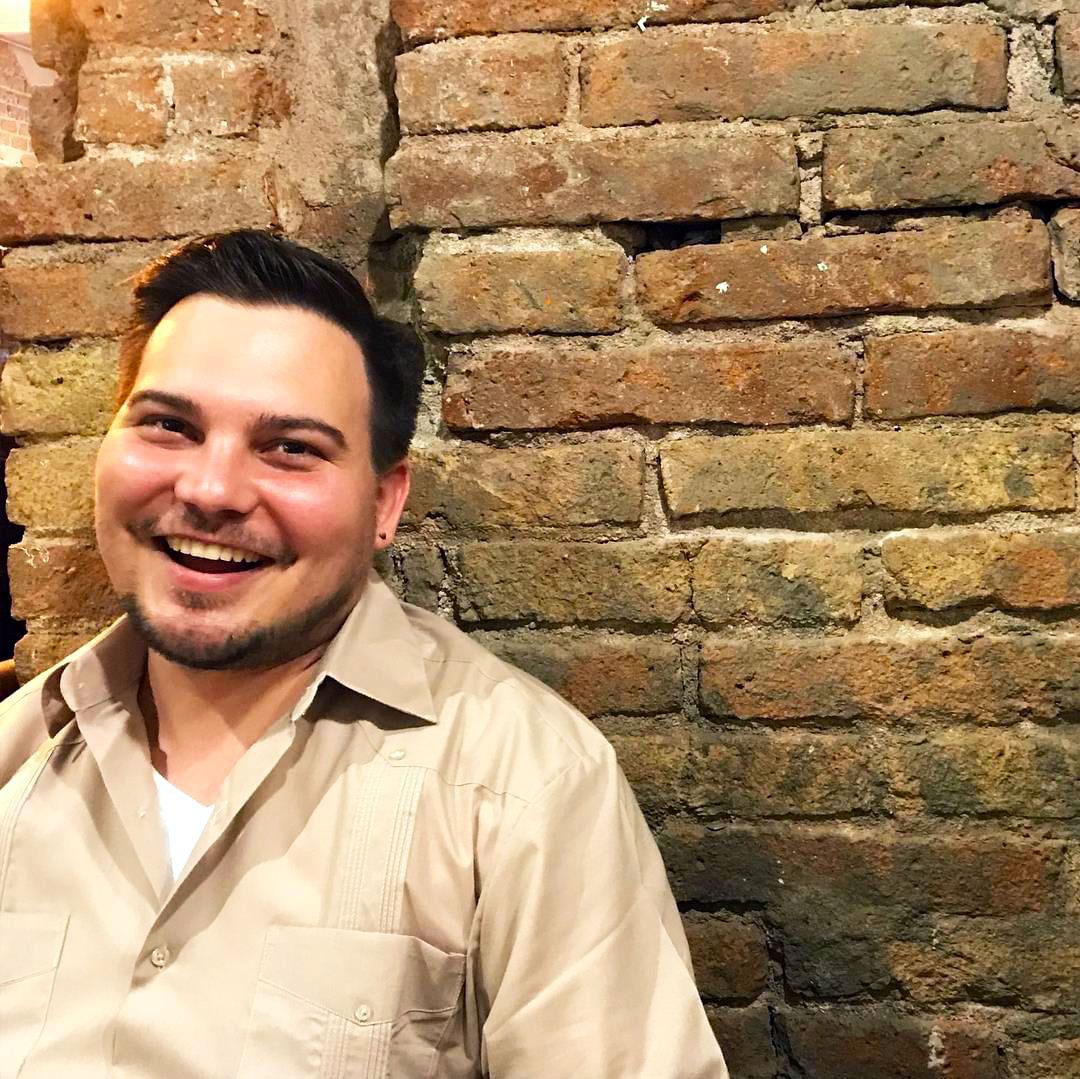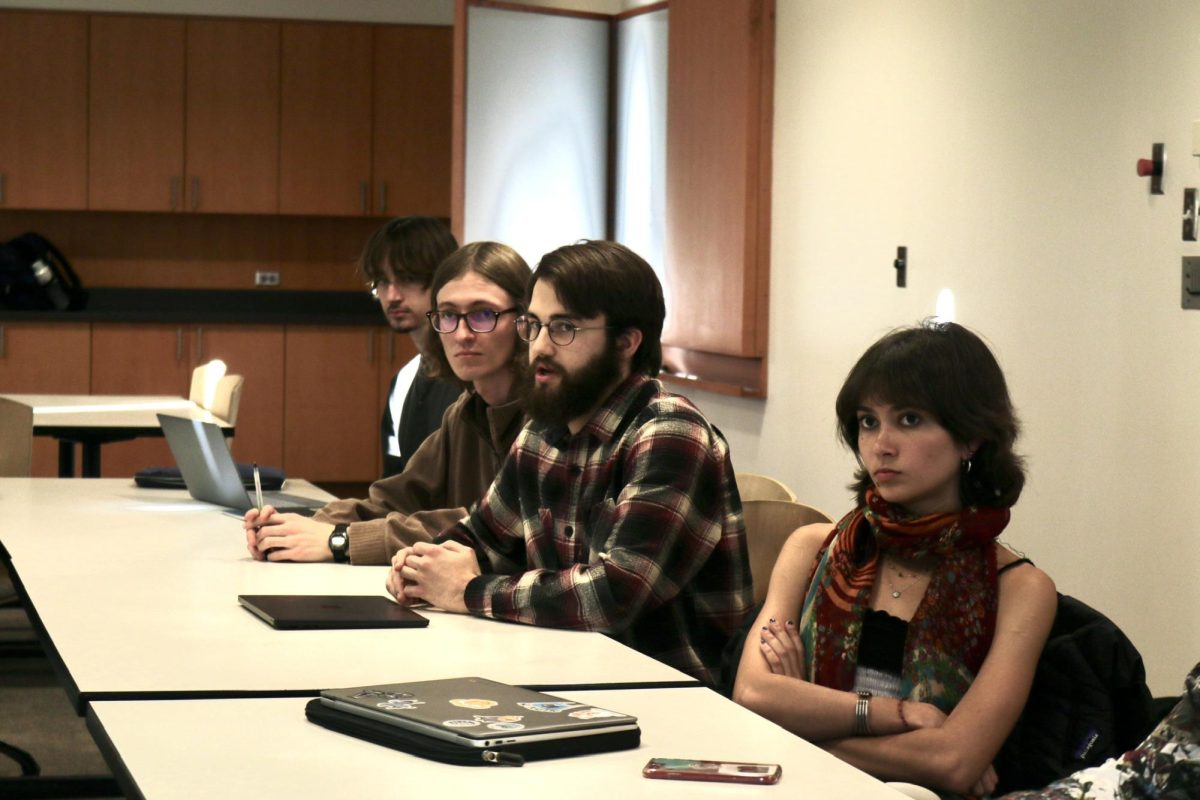S&B writer Elliana Cierpiot talks to three Grinnell professors about their research and academic interests
Professor John Petrus, Spanish

While on a research trip to California, Professor John Petrus, Spanish, found what would become the basis for his next project — an extensive set of diaries that cataloged the daily life of Roberto Vargas, a Colombian man living with HIV/AIDS.
While looking through boxes in archives, an archivist alerted him to the diaries, which hadn’t been transcribed or written about before.
“I was visiting the ONE Archives at USC in Los Angeles and I visited the GLBT Historical Society archives in San Francisco and the Berkeley ethnic studies library … during this trip, I was trying to gather a vast array of material sort of under the umbrella of intimate Latinx experiences,” Petrus said.
The diaries interested Petrus both because of the personal aspect and their timeline.
“Since his diaries include a time before the very beginnings of the [HIV/AIDS] pandemic being recognized in queer circles, and also in the height of the crisis, what’s really interesting [is] to see how his writing and his attitudes change and how that might connect with how attitudes and feelings were changing with other folks in other populations as well,” Petrus said.
Petrus’ research is considering how these firsthand representations compare with other AIDS life writing and memoirs, and with more official history representations of the pandemic.
“It was shocking how these personal life narratives contrasted with the official history,” Petrus said.
Although the diaries provide a personal representation of these experiences, there are still quirks to looking at how life writing can reflect a larger, global issue.
“Life writing is also sort of a Pandora’s Box,” Petrus said. “Because in theory you’re writing for yourself but you’re also writing for a potential public right … in theory this is a type of writing that is completely open and honest and authentic but that’s only part of the story.”
Professor Qiaomei Tang, Chinese
Professor Qiaomei Tang, Chinese, focuses on representations of women in premodern China. In the past, she has written about depictions of divorced women in the period that would align with what in European history is considered medieval.
One of her more recent projects focused on the depictions of a poet named Su Hui, who wrote a famous palindrome poem — but, as time went on, she was depicted in writing and art less as a prolific poet and more as a jealous woman. Tang considers both literary and artistic depictions of Su Hui, to track the shift in how she is represented.
“My next project is on jealousy,” Tang said. “So, I want to consider, what does that mean, to be jealous, who gets to be jealous. … If you just pick up a Chinese text you will see that a jealous woman is always condemned … we considered jealousy [a] wicked kind of trait, unique to women.”
Considering jealousy, Tang is looking at how men’s and women’s jealousy is represented differently in premodern Chinese texts, especially in difference of genre.
“You can only find representation of male jealousy [and] sexuality, in certain texts and certain genres and for female jealousy you will also find representation of female jealousy in certain genres, for example medical texts, religious texts,” Tang said.
“But in poetry you will see a representation of male sexual jealousy more often than female sexual jealousy, so I’m just interested in … genre and gender, and the relationship between the two.”
Tang has previously also written about poetry and gender in premodern China in other ways, including an examination of the two principal-wives phenomena in early Medieval China, which occurred as a result of the split between Northern and Southern China.
Professor Jules Bacon, Sociology
Professor Jules Bacon, sociology, said they came into the study of environmental sociology by accident — they had been doing work in environmental activism as a sociology student in a PhD program.
Bacon has done previous work about Indigenous environmental activism, and environmental activism as it relates to settler colonialism. Their current project is a MAP with students that will assess how Big Ten environmental organizations are engaging — or not engaging — with Indigenous activists and issues in the United States, especially in the wake of movements such as NoDAPL, protesting the Dakota Access Pipeline.
“I think a lot of large-scale environmental organizations were very lax or very noninvolved when it came to talking about Indigenous issues in the US … but I think since NoDAPLl it would really seem like an oversight for them not to so I’m curious, how have they tried to engage in these issues?
“To what extent are they hiring indigenous people to work for them, if they are hiring people, to what extent are they publicly announcing support for certain indigenous movements?” Bacon said.
The project is in early stages now, and students will begin work this summer.
“Mostly it’s a content analysis at this point,” Bacon said.
“So, the students in the MAP project will be working on developing a literature review and then we’ll do some basic data collection and looking at the contents being produced by these organizations, and hopefully later on, in a year or two we can move on to doing interviews with people.”
































































